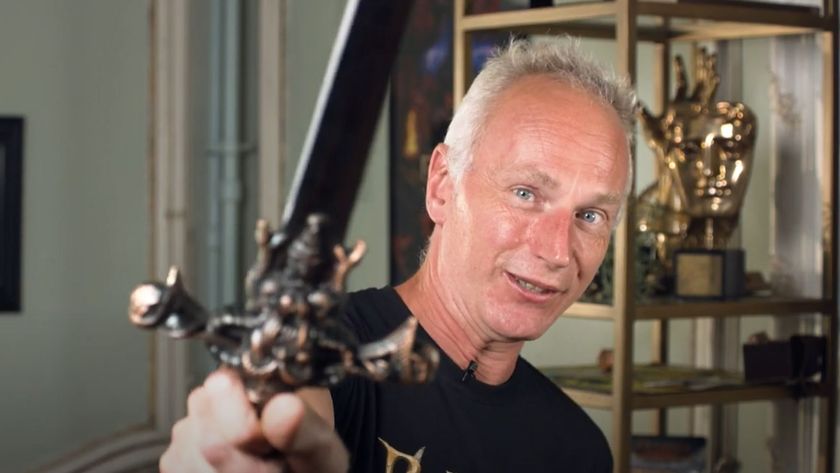Unicorn Overlord is my GOTY, so I had to talk to its director about how the devs ran out of money, what makes strategy RPGs fun, and hopes for DLC or a PC port
Interview | How Unicorn Overlord survived and thrived "far out of the mainstream"
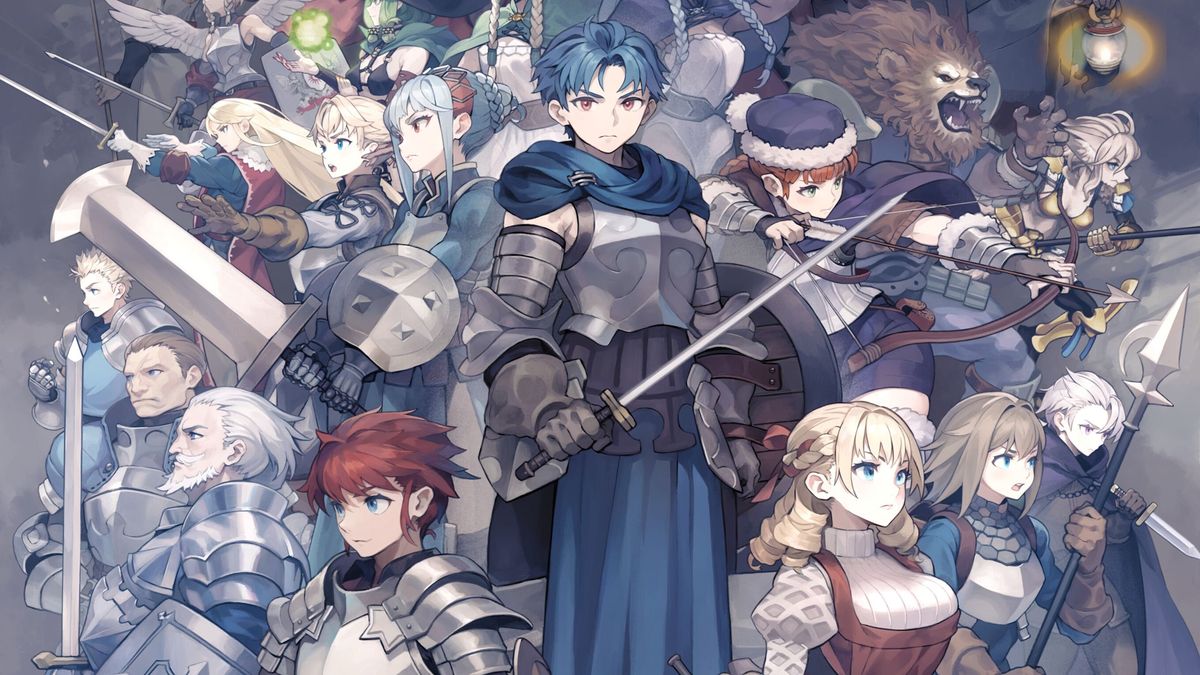
Don't let anyone tell you the universe doesn't have a sense of humor. A few weeks ago, ahead of a Monster Hunter Wilds hands-on preview event, I staggered into a softly lit hotel room in Osaka, Japan, my suitcase trailing behind me like an anchor and my tired blue eyes briefly lighting up at the sight of a bed. Even a hotel bed would do; not even hotel-standard flimsy pillows that feel like grocery bags filled half with vanilla cream and half with rocks could keep me from sleep. After a long flight, nothing could. Except, it turns out, the thing that kept me from sleep many, many times this year: Unicorn Overlord, my 2024 GOTY.
Unicorn Overlord is a new strategy RPG from Dragon's Crown developer Vanillaware. It is where I spent 240 gleeful hours this year and it's one of my favorite games of all time, slotting in just behind Hollow Knight and Elden Ring. It is not 240 hours long, unless you are me, and I have it on good authority (me) that you aren't me. But if number goblins hold the reins of your brain, too, you may find it as all-consuming as I do – a holy library of units and items and skills and matchups where I could comfortably spend eternity.
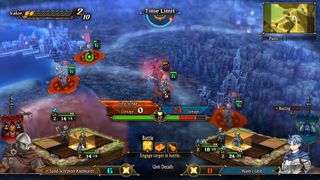
Unicorn Overlord is sublime. It's the most impossible-to-put-down game I played in a year that also included Balatro and Metaphor: ReFantazio, two games which would be considered illicit substances if my taste in games was used to legislate public health. Unicorn Overlord, then, would be some kind of Super Nicotine. It is, as I said earlier this year, a game of beautiful systems intersecting beautifully and gorgeous characters interacting gorgeously. And it was just about the only thing that could've pulled me back from the abyss that long night in Osaka. An email that I'd wanted to see for months had arrived: an interview opportunity with the director of Unicorn Overlord, Takafumi Noma. I had to respond immediately.
My hasty, preparatory research into the latest news around Vanillaware led me to another surprise. Vanillaware, it turns out, is based in Osaka. Not only that, their new office was approximately 600 meters from my hotel. I was in the neighborhood! In a world without language barriers and bureaucracy and social norms and common sense, I would've dropped by for a face-to-face chat and everything would've been peachy. I decided against visiting, not wanting to step on anyone's toes.
Just days later, Vanillaware artist Shigatake recounted the horror of overseas tourists "visiting without an appointment and barging into the development studio of their own accord," per Automaton. First, I didn't do this. Second, don't do this. And third, what are the odds?
Please sir, I want some more
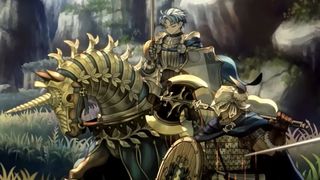
I did, however, talk to Takafumi Noma. First, the big question: does Vanillaware want or plan to do more with Unicorn Overlord? A DLC? A sequel, dare we dream? Perhaps a spiritual successor? I need more Super Nicotine, Vanillaware. (The studio is, or at least was, hiring for a new action RPG.)
"We are profoundly grateful for the sheer number of players who have embraced our vision for a new strategy RPG," Noma responded. "Many of these players have expressed a wish for DLC or a sequel to the game. While there are currently no plans for further development of this nature, I definitely wouldn't say no if it were up to me. It would be great if we could make this happen sometime down the line."
I'm just going to go ahead and rip the other bandage off, too. I asked if there are plans for a PC port, not just because Unicorn Overlord is perfect for PC in the same way that Tactics Ogre and Triangle Strategy were perfect for PC, but because other games from Atlus and its owner Sega, like Metaphor and the Persona series, have been absolutely slaying on PC. Alas, Noma said "we do not have any plans for a PC version at this time."
Sign up to the 12DOVE Newsletter
Weekly digests, tales from the communities you love, and more
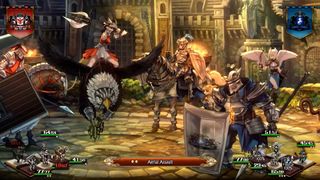
My hopes thoroughly dashed, I wanted to explore an anecdote that had been stuck in my mind for months. During the development of Unicorn Overlord, Vanillaware straight-up ran out of money. It did the same thing during the making of its previous game, 13 Sentinels: Aegis Rim. The games industry is rich with financial struggles and shoestring budgets, but a situation where the finance folks at an established studio open their wallet neck-deep into production and a little fly buzzes out to reveal the yawning emptiness within doesn't necessarily happen all the time, if only because lots of video game finance folks probably would have ended production or rushed out a minimum viable product before it got to that point. How did Vanillaware run out of money, and how does it stay afloat taking big, offbeat swings like this at a time when countless teams across the industry are treading water or outright sinking?
"First of all, we are very grateful to Atlus for believing in us and taking a risk on a game so far out of the mainstream," Noma explains. "That said, we are also a relatively small company with a low employee count, which helps to keep our operating costs at a modest level. The only reason we exhausted our funds during development is because we didn't stop work until we were satisfied that we'd made something we found fun to play. This may not always be the most cautious business decision one could make, but one of the perks of having such a small team is the freedom to build things we can be proud of."
Noma's answer is, in some ways, a potential model for the industry. It's not a new one, but it is another example of how studios can operate. If you don't have hundreds or thousands of people working on a game for four or six or eight years shoveling tens or hundreds of millions of dollars like coal to keep the furnace alight, costs go down, risk tolerance goes up, and that opaque designed-by-committee funk fades away. Then you get games like Astro Bot, or 2024's solo-developed Balatro or Animal Well, or indeed my third-favorite game of all time.
The unicorn overlord himself
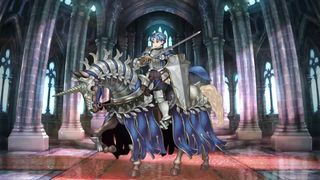
Unicorn Overlord represented a big change for Noma in particular. It was his directorial debut after credits on multiple games, many in programming roles. What was the biggest challenge, and how did his approach to development change?
"The biggest issue actually stemmed from the fact that our original spec called for a completely linear storyline," Noma begins. "Between each mission we had to write scenes explaining at length why and how the characters were moving to the next location, and all this laborious stitching-together of the narrative accomplished was to make the game feel restricted and unfun. As you've seen, we eventually solved this by reworking the game into more of an open-world system. One welcome side effect of this change is that each player now gets their own personalized experience of the storyline based on their individual choices."
I've inadvertently proven Noma's point. One of the highlights of my absurdly, deliberately prolonged playthrough was the emergent relationship between two of my humdrum, everyday units: a dragoon warrior and a priestess healer. These basic mercenaries became the strategic core of one of my most-used squads, and this eventually snowballed into the emotional core of my army in a demonstration of how gameplay and narrative can play off each other. For no reason beyond my own attachment and head canon, I didn't want these two units, these characters of my own creation, to be apart.

"As for my thinking and goals in my role as director," Noma continues, "I don't believe they changed too much over the course of the project. Right from the start, my approach toward taking responsibility required an environment where I could directly involve myself in the programming, writing, scripting, etc. Naturally, when the workload was too much for one person, we split up the duties across the team, but I always tried to keep the workflow such that I could take over on my own if necessary."
As Noma said, Unicorn Overlord was "far out of the mainstream." Which is, to me, a bit of a shame. How lovely life would be if big, brilliant strategy RPGs came out every month. Unicorn Overlord helped me rediscover my love of the genre, so I wanted to put the question to Noma. What makes strategy RPGs fun? Here, too, his vision reflects my experience with the game.
"I think that even the low-level strategy elements of the genre, the unit tweaking and the battling, are quite a lot of fun, but to me, the true joy of 'strategy RPG' as a genre comes from sprinkling in those broader RPG elements," he said. "As you recruit an army full of colorful characters and empathize with their individual stories and personalities, that experience in turn enriches the tweaking-and-battling side of the game. The two genres complement each other particularly well.
"That's also part of the reason we allowed players to select just about any character as a partner to take with them to the final battle. We wanted each player to feel like they were getting a special story written just for them.
"It's true that the sheer number of variables – characters, classes, equipment, skills – could be intimidating, but we tried to mitigate the pain of trial and error by giving players the exact damage calculations ahead of time and allowing them to skip or fast-forward through battles. I like to think we achieved our goal of a fun, low-stress strategy experience."
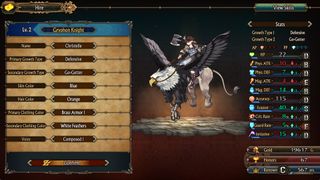
I've repeatedly struggled to articulate the excessive love I have for Unicorn Overlord. Noma's assessment of the whole strategy RPG genre is a useful springboard and I will gladly steal it. It's a matter of verbs. I read a lot and I game a lot, and I generally think of books and games as passive and active experiences respectively. It's absorbing versus doing, experiencing versus participating. Performance versus play. Often I'm in the mood for one but not the other. Yet Unicorn Overlord is – not uniquely, but exceptionally – both a joy to experience and a treat to play. Its mechanics are so independently ironclad, thematically consistent, and narratively impactful that playing inspires the performance and vice-versa. It's in the ambushes, the hasty retreats, the risky gambits, the characters that make great units and the units that become great characters. It is characterization weaponized, storytelling rendered down to Lego bricks. It's a constant jump from the audience to the stage, directorial but, under the hood, overridingly strategic and structured.
Unicorn Overlord is maybe the best demonstration I've seen of how games can share their stories through what you do and how the doing makes it all immeasurably more memorable. It's the numbers that keep me up at night, but it's the dragoons and priestesses that I remember.
These are the 25 best games of 2024 – and you'd best believe Unicorn Overlord is on the list.

Austin has been a game journalist for 12 years, having freelanced for the likes of PC Gamer, Eurogamer, IGN, Sports Illustrated, and more while finishing his journalism degree. He's been with 12DOVE since 2019. They've yet to realize his position is a cover for his career-spanning Destiny column, and he's kept the ruse going with a lot of news and the occasional feature, all while playing as many roguelikes as possible.
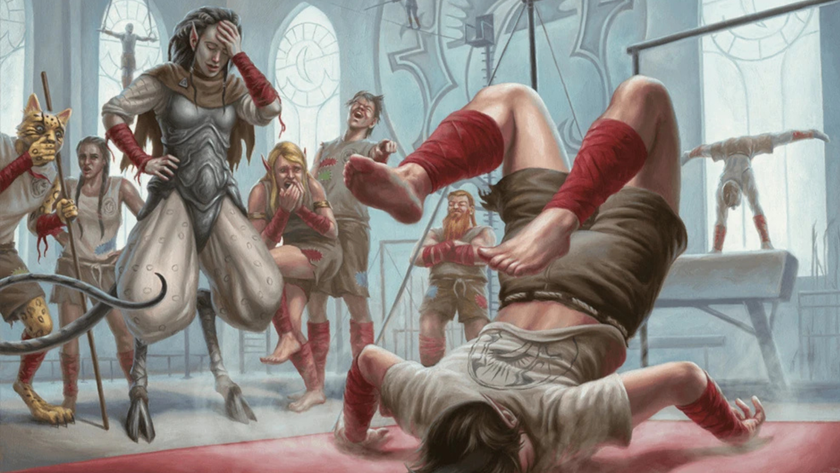
The Baldur's Gate 3-themed Stardew Valley mod that Larian boss Swen Vincke called "amazing" gets DMCA'd by D&D publisher Wizards of the Coast
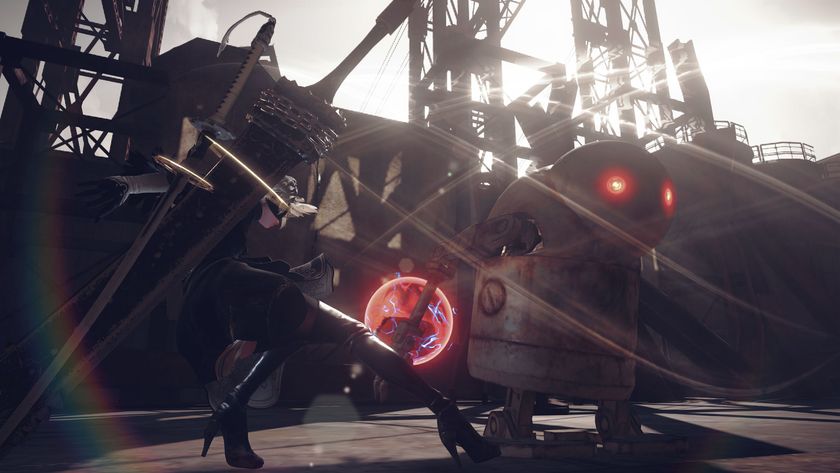
After PlayStation boss praises Nier Automata as a savior for Japanese games overseas, Yoko Taro says he was specifically told to focus on Japan because it wouldn't fly overseas
